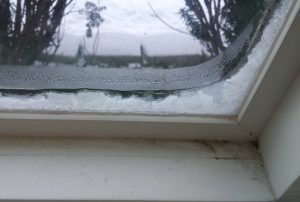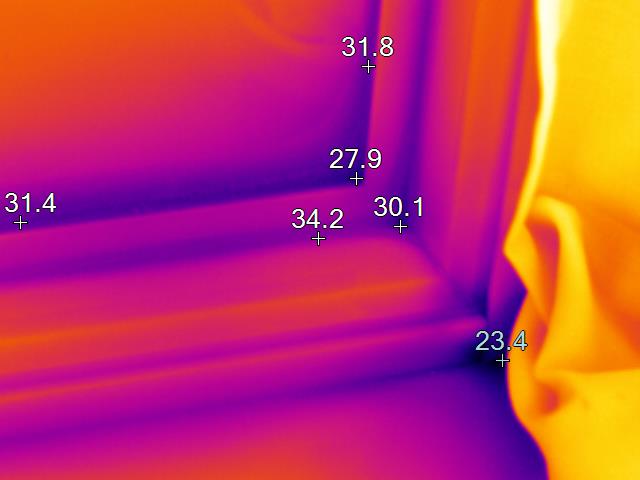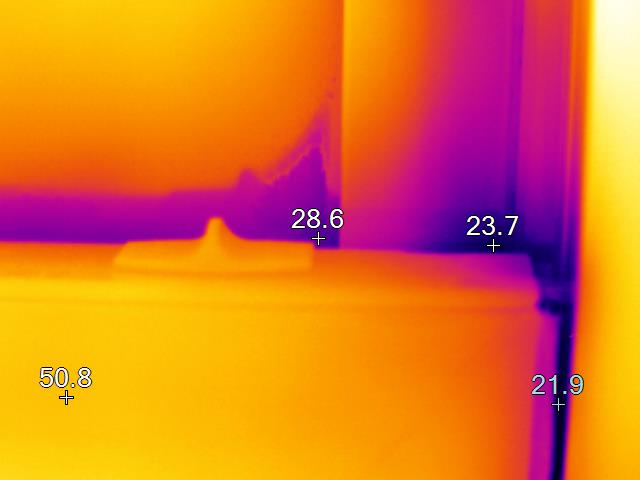 I had new home builder once ranting — it is negative 30 degrees outside & I have an individual standing in front of a huge picture window in a robe, complaining to me over the phone about how cold it is… You know how I know this? Well I was driving by at the time, and could see him sipping his coffee in nothing but a robe while he was talking to me on the phone…
I had new home builder once ranting — it is negative 30 degrees outside & I have an individual standing in front of a huge picture window in a robe, complaining to me over the phone about how cold it is… You know how I know this? Well I was driving by at the time, and could see him sipping his coffee in nothing but a robe while he was talking to me on the phone…
It is so cold standing in front of my windows… I feel a draft coming in around my windows… I just had new windows installed, I thought that would eliminate that condensation issue… Why don’t I feel the drafts during the summer months? Granted there are many iterations of the questions listed above, but most boil down to moisture on the windows, feeling cold, and felling drafts – so what is the root cause & what is the fix?
Why is it so cold in front of windows?
I know, all my outside walls feel cold but why do the windows seem so much colder especially as I have these newer double or even triple hung windows? Well for the first part even with newer code compliant windows you only have an R-Value of around 3.1 (U-Value of .32). Compare that to R 20 for your walls and you can see why that area is colder. One of the other main reasons is your walls have some sort of protection from the wind aka siding, while your windows are fully exposed to all the elements eliminating any buffer zones.
One other big issue is most windows have a ton of framing around them from headers, cripple studs, king & jack studs, etc… So not only do you have less insulation around the windows you also have plenty of air leakage points if the windows were not installed properly. No people are not kidding when asked what is the best window – it’s the one that is installed properly. Yes I have seen single panes out perform triple paned windows (yes, even without storms installed) just because of how they were installed.
I feel a draft?
Believe it or not the answer can be yes you do, to no you really don’t… Shoot I had one where they swore they were feeling a draft sitting on a coach about 10 feet away from the window but it only happened intermittently. The catch was it didn’t matter what time of year it was (good hint it is legit draft) but it also didn’t matter whether it was windy or not outside… The culprit turned out to be that behind this coach there were 2 return vents. Granted this was a weird case but let’s look at how you can tell.
Nothing beats the back of the hand method, right? Well not so fast at least during the winter – One item to remember is that heat moves to cold & while you are sitting at a nice toasty 98.6° (assuming you aren’t running a fever) in a house kept at 70° or above, your windows could easily read 40°, 30°, or even below 0° depending on what the conditions are like outside. So you are sitting at 98.6 & your window lets say is at 30… now we introduce this heat transfer mechanism called convection. When this happens you can actually form a convective current loop where the heat being shed by your body hitting the cold window (yes even being a foot or more away) & voila – it feels like a draft.
I know Infrared can tell me right? Yeah, probably not unless you are running a blower door or have enough pressure differences caused by wind or stack effect to show the tell tale “fingers” of air leakage. Remember infrared only shows surface readings, not what or why it is happening. The best way, is just using a simple piece of tissue paper or smoke stick – is it getting blown away or sucked into an area? Ok now something is going on when things warm up – you can fix the issue. In the mean time you can consider an interior storm to help stop it.
What causes condensation or ice to form inside?


